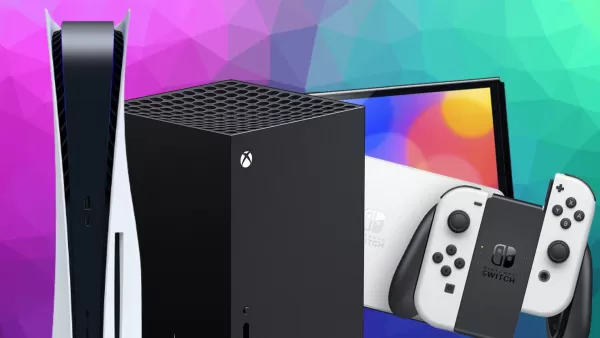

The effects of recent U.S. tariff policies are beginning to ripple through the consumer electronics market, with potential long-term consequences still unfolding. Initially announced in March, these trade measures sparked immediate warnings from analysts about impending price increases and supply chain disruptions affecting game consoles, software, and accessories.
Tariff Developments
The White House implemented sweeping changes in April, introducing a 10% universal tariff followed by extensive "reciprocal tariffs" affecting over 50 countries. Chinese imports faced particularly steep increases, briefly reaching 145% before settling at 30% in May.
While the tariff landscape remains fluid, its impact on the gaming sector has already become apparent. Industry leaders Sony, Microsoft, and Nintendo are implementing strategic adjustments to pricing structures, supply chains, and inventory planning.
Industry Leaders Adapt
Sony
Sony maintains a cautious stance regarding U.S. pricing despite raising PlayStation costs internationally due to economic pressures. CFO Lin Tao acknowledged monitoring market conditions closely, suggesting potential future adjustments affecting both pricing and distribution.
The company maintains significant inventory buffers in the U.S. market while exploring supply chain diversification options, including domestic manufacturing possibilities.
Microsoft
Microsoft moved swiftly to implement price increases across its Xbox hardware lineup, reflecting higher import costs from Chinese manufacturing operations. The company benefits from existing production alternatives in Mexico and Vietnam, which provide some insulation against trade disruptions.
The company plans additional price adjustments heading into the holiday season, with accessory costs particularly affected by current tariff structures.
Nintendo
Nintendo navigates market uncertainty surrounding its Switch 2 launch during turbulent trade conditions. While maintaining original pricing for consoles, the company implemented modest accessory price increases to offset tariff impacts.
Strategic inventory stockpiling and gradual production shifts to Vietnam demonstrate Nintendo's proactive approach to supply chain challenges.
Accessory Manufacturers Face Challenges
The tariff environment poses particular challenges for peripheral manufacturers:
- Razer: Temporarily suspended select U.S. sales following tariff spikes
- Dell/Alienware: Leverages global manufacturing network to mitigate impacts
- 8BitDo: Relies solely on U.S. inventory amid Chinese shipment pauses
Other notable manufacturers including ASUS, Corsair, Logitech, and Samsung continue monitoring developments while managing global production networks.
The temporary tariff relief currently in place presents consumers with a potential window for strategic purchases before possible price adjustments take effect later this summer.

 Latest Downloads
Latest Downloads
 Downlaod
Downlaod




 Top News
Top News









